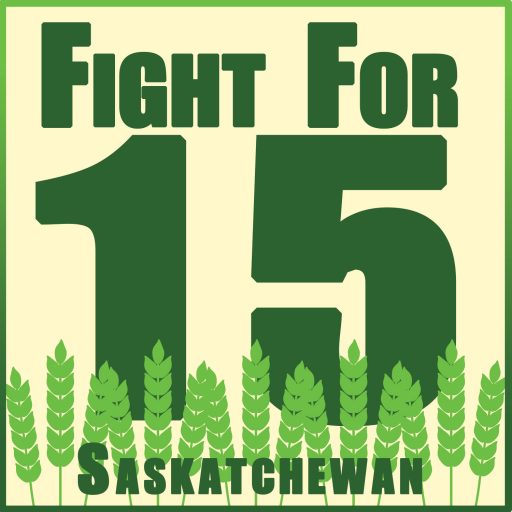-
Facts about Saskatchewan Inequality
Category : Uncategorized
Principles for a decent minimum wage:
- No worker should live on poverty wages.
- Minimum wage earners should earn wages that are at least 10% above the poverty line
- The minimum wage should increase each year to keep pace with rising prices.
- All workers need a $15 minimum wage now!
Poverty in Saskatchewan
One in ten people living in Saskatchewan lives in poverty – this adds up to a roughly 110, 000 people who struggle each and every day to make ends meet. The Saskatchewan Government has released a Poverty Reduction Strategy, but the strategy does not include an increase to the minimum wage or acknowledge the need for a living wage.
Based on CCPA’s Fight for $15 Min Wage report, 20% (96,000 workers) in Saskatchewan make less than $15/hour.
Child Poverty in Saskatchewan is Staggering
One in four children in Saskatchewan live in poverty. Our child poverty rate has increased over the past 25 years, to the point that it is the second worst in Canada and on the same level with middle-income countries like Romania.
Poverty Does Not Impact People Equally
Saskatchewan has the highest First Nations child poverty rates in all of Canada – an appalling 64% of status First Nations children live in poverty in this province.
People with disabilities, newcomers, single mothers, senior women living alone, and Aboriginal people are more likely to be poor. It is therefore not surprising to find the connection of those who work in low-wage jobs: in Saskatchewan, the majority of people who earn less than $15/hour are women and across Canada, wage gaps are attributed to race, gender, sexual expression, and nationality.
The Minimum Wage Is Not Enough
The Market Basket Measure (MBM) low-income line for a family of four living in Saskatoon is $34,897. The Canadian Centre for Policy Alternatives (CCPA) calculates that a family of four with two children needs an income of about $60,000 – that’s because the MBM does not take into account needs such as childcare, education, and dental care – the kind of things that are accounted for with a living wage.
For a parent working full time at Saskatchewan’s current minimum wage of $10.96/hour, minimum wage pays just over $20,800 per year – that’s roughly $15,000 below the poverty line for a family of four, or $40, 000 below the poverty line in more fair methods of measuring income (such as the living wage method). While the minimum wage has increased annually over the past, these increases are insufficient to keep many families with children out of poverty.
The problem with Saskatchewan’ minimum wage, supposedly meant to reflect the rising cost of living, is that the base wage is not sufficient. In the Minimum Wage Regulations, 2014, it is noted that the base rate of the indexation is $10/hour. It is clear that this base rate did not measure need as so many working people in Saskatchewan continue to live in poverty while working – evidently, Saskatchewan’s indexation calculation is ineffective.
Clear Examples:
Roughly 31,400 people used a food bank in Saskatchewan as of November, 2016; an increase of 77% since 2008. Food bank use is not just a big city problem: there are 28 food banks in Saskatchewan, most of them located in smaller cities and towns. Peter Gilmer, Regina Anti-Poverty Ministry said that the problem is partly from not having adequate increase to income for low-income people during the boom. 15% of food patrons are employed.
Saskatchewan food bank users:
- 45% are children under 18 – the highest percentage in Canada
- 18% have wages as their main source of income – a glimpse into the fact that many users are the working poor. This figure does not include the many food bank users who have some employment income but who depend mainly on social assistance, pensions, or student assistance.
Poverty Isn’t Cheap
Poverty Costs calculated that, “the cost of poverty in Saskatchewan in 2010 was $3.8 billion in heightened service use and missed opportunities. In that year, Saskatchewan’s gross domestic product was $66 billion. This means that the cost of poverty to our province in 2010 was well over 5% of our GDP.”
Inequality Is Shameful
It is important to understand that the richest 62 people are as wealthy as half of world’s population – 3.6 billion people. In Canada, 86 Canadians have as much as 11.4 million people. It is clear that the 1% aren’t tightening any belts: the average salary of a top 100 CEO is 184 times that of the average Canadian.
So while those earning the minimum wage struggle to make ends meet, the rich keep getting richer.
We Can Win
Raising the minimum wage to $15 an hour is an effective and important step in addressing poverty and ensuring a better distribution of wealth. Across the U.S. and Canada, workers are coming together to Fight for 15 – and they’re winning – let’s join the fight.


